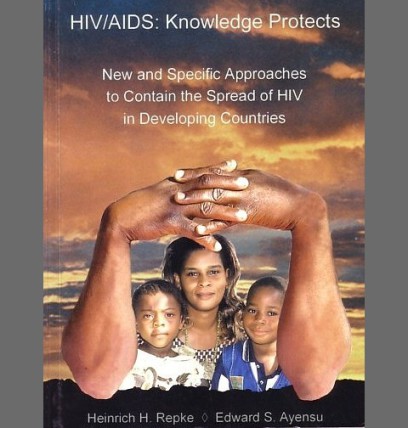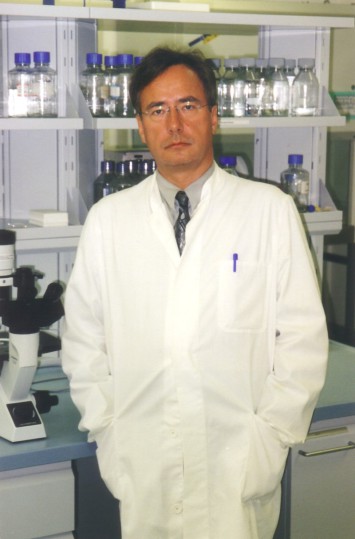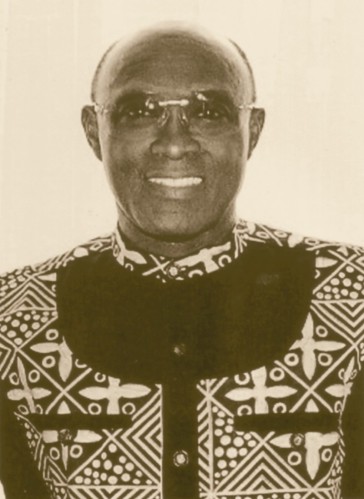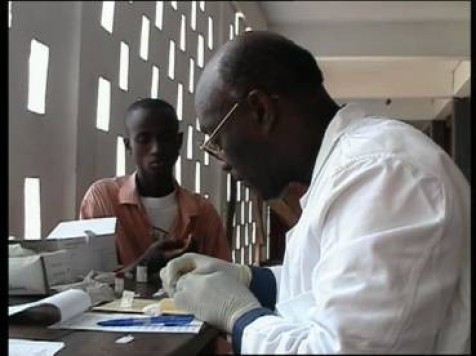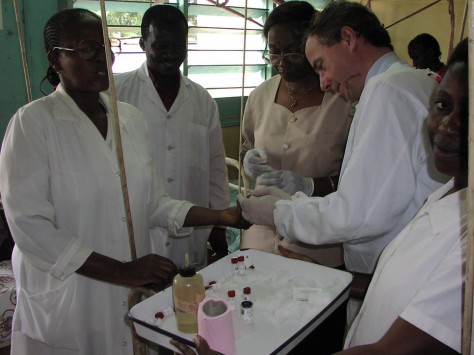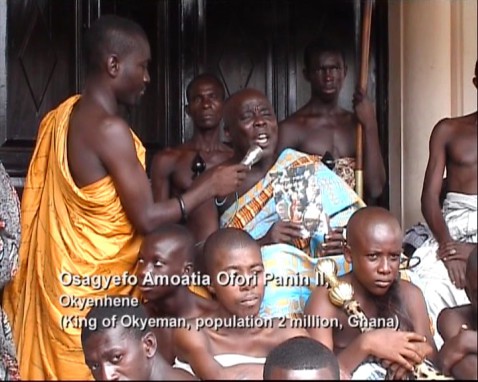HIV/AIDS: Knowledge Protects
New and Specific Approaches to Contain the Spread of HIV in Developing Countries
H. Repke and E.S. Ayensu, 243 pages
New, updated edition in preparation
In preparation of the World AIDS Conference 2022 in Canada, UNAIDS has published an alarming report which describes the negative effects of the SARS-CoV-2 pandemic on the efforts to curtail the spread of HIV/AIDS:
https://www.unaids.org/en/resources/documents/2022/in-danger-global-aids-update.
This report was released on July 27th, 2022 and underscores the need to maintain and extent measures and programs suitable to prevent the spread of the infection. This is what the Knowledge Protects Program can achieve. Therefore, its large scale implementation needs to be reconsidered.
In 2021 about 1,5 million new infections were recorded, which proves that the spread of HIV in developing countries could not be curtailed at all. 38,4 million individuals are currently living with HIV. Fortunately, many those individuals have access to anti-retroviral drugs. Despite of the low cost of these generic products, it requires each year 20 billion USD to pay for these drugs. Much of it is provided by international donors and governments of the affected countries.
Unfortunately, foreseeable problems with the essential compliance with the drug administration scheme have resulted in the emergence of dangerous drug-resistant viruses. 10-15% of the infected individuals carry such viruses already and infect others. All this had been predicted by Repke and Ayensu in the first edition of the Knowledge Protects book which was presented and discussed widely with nearly all relevant international organisations and governments.
Therefore, the methods which are described in the Knowledge Protects Program and which have been tested with overwhelming success in African countries need to be reconsidered as the last remaining remedy against the spread of HIV in developing countries, in particular in Africa.
The documentary linked below shows the experiences with pilot programs and proves that many of the old prerogatives (e.g. stigmatization of those found to be infected) are plainly wrong, provided large scale HIV-testing and counselling is conducted in the way proposed by the Knowledge Protects Program.
Foreword by Kofi Annan
(at the time of publication of the first edition of the book
serving as Secretary General of the United Nations)
At the commencement of the Special Session of the UN General Assembly on HIV/AIDS held on June 25 2001, I recalled five key objectives which I had first laid out for the African AIDS Summit at Abuja,
Nigeria. These points outline a world-wide strategy on
HIV/AIDS: it includes the prevention of the further spread of the virus; arrest of mother-to-child transmission; the provision of care and treatment for all infected persons;
advancement of the scientific search for a vaccine and a cure; and the protection of those whom the disease has rendered most vulnerable, especially orphans.
I find it gratifying that all of these issues are addressed in one form or another in the present volume. Many other related matters appear in some detail. In addition, the authors
maintain that current efforts to stem the tide of AIDS could be undermined by the assumption, often unwitting, that approaches which have worked in the developed countries will also work
with success in developing countries. They are of the view that failure to recognize adequately this basic misconception could stultify many well-intentioned AIDS strategies, especially in Africa,
where the large majority of the world’s HIV/AIDS cases occur.
I find that the Question and Answer mode of presentation within which all the scientific and socio-cultural issues are discussed contributes to the usefulness of this work. The book’s primary
value, though lies with its core concept that developing countries, if properly enabled, can erect internal barriers to what must now be termed a pandemic. The enabling process involves mass
screening not only for HIV/AIDS victims but for a variety of endemic diseases that impede progress throughout the developing world. A worldwide campaign is envisioned to include personal counseling
of individuals and couples who join national programs.
While not everyone will agree with the specific strategies proposed by the authors, I believe that this book will stimulate constructive debate which will brings us closer to the objective of
worldwide AIDS prevention and control.
Kofi Annan, Secretary General of the United Nations
Authors’ Note
We believe that the Knowledge Protects Concept presented in this book is currently
the most realistic way to contain the further spread of HIV/AIDS in developing countries. We have coined the term “Shielded Testing and Counseling” (STC) for our practical approach.
We present a comprehensive action plan for containing the spread of HIV/AIDS in developing countries and discuss all the essential tools for implementing and financing this strategy.
This book uses Africa as an example because the vast majority of HIV-infected people of the world live there. Modifications of the concept which address the different cultures of Asia, the Pacific,
Latin America, and the West Indies, can be made readily without detracting from the effectiveness of the program.
Finally, we hope that decision-makers – both North and South – will examine the contents of this book from a very pragmatic standpoint to enable them assist in providing a practical solution to stem
the tide of this epidemic.
Presentation of the strategies of the Knowledge Protects Program
to leading individuals in different parts of the world
A large number of copies of the first edition of the book was published and made available - free of charge - to countless individuals and organisations around the world.
Immediately after the publication of the first edition of the book, the Knowledge Protects Program was discussed in detailed meetings of Repke and Ayensu with
- the President and Vice Presidents of the World Bank,
- the Majority Leader of the US-Senate,
- the leaders of various international organisations such as UNOPS, WHO, Africare, International AIDS Trust, International Business Council on HIV/AIDS as well as with
- the Heads of affected companies in different parts of the World.
Furthermore, Repke and Ayensu presented the program in meetings with Prime Ministers or Health Ministers of various countries, including
- Ghana,
- South Africa,
- Burkina Faso,
- Ivory Coast,
- Cameroon,
- Congo-Brazzaville,
- Kenia, Botswana,
- Lesotho,
- Uganda,
- United Arab Emirates
- China and
- Germany
- as well as to traditional rulers such as the Kings of Okyeman and Ashanti.
In addition, they conveyed their proposals personally to the responsible officials in seven other countries.
Furthermore, Repke and Ayensu presented the experiences with the program a various conferences, some of which were solely dedicated to the Knowledge Protects Program.
The authors:
Heinrich H. Repke, Ph.D., D.Sc.
Lives in Berlin, Germany, and has spent about 30 years in academic research in immunology,
virology and drug development. He has held senior faculty positions in Pharmacology and molecular biology in Germany and the United States, including several years as Resident Visiting
Professor at Harvard Medical School in Boston, USA before establishing a mid-size biotech-company.
It occupied completely two four-floor mansion style buildings at a peninsula close to Berlin. Repke designed and supervised the details of the conversion of these buildings (former hospitals) into high-tech laboratory facilities, including one of the few German maximum security suites (BL3) for experiments with deadly infectious agents.
Repke acted as CEO and scientific director of this company and was the majority shareholder. He was conducting and supervising various basic and applied research projects in molecular biology and diagnostics. With regard to the latter, he focused on the development and production of the worldwide first complete set of rapid HIV screening and confirmation assays.
These assays used novel genetically engineered proteins and a heat stable detection system, both of which were invented and produced by Repke and his large team of researchers. For the first time, the simultaneous use of these three tests allowed a 100% accurate diagnosis under field conditions in developing countries. No special knowledge or storage conditions were required to conduct the tests. While the screening test takes only 10-20 seconds, the confirmation of a positive HIV-diagnosis by the newly developed rapid Western Blot can be completed within a few minutes. These tests were used during all pilot projects of the "Knowledge Protects Program", thus allowing a laboratory standard, error-free detection of an HIV-infection.
Unfortunately, the initial idea of triggering a worldwide application of the Knowledge Protects Program to contain the spread of HIV, has not materialized. Despite of much political support, the financial and psychological constraints were major obstacles which could not be overcome. In addition, many national and international HIV/AIDS organizations, NGOs and activists raised concerns about the possibility of stigmatization of those who were found HIV-positive in the conduct of the Program. In contrast, the field studies of Repke, Ayensu and others have proven that this is not the case at all, if the procedures described in the above mentioned book were applied during testing and counselling.
After having left the area of commercial and academic research for quite a while and dedicating himself to work in other, unrelated areas, Repke returned to the field of virology/immunology after it became evident that the political response to the SARS-CoV-2 pandemic was insufficient and that intramuscular vaccinations cannot achieve sterilizing immunity. He designed a comprehensive project for creating sterilizing immunity by nasal vaccination using protein loaded nanoparticles. The experimental work to develop this vaccine and the preparation of virus challenge experiments are being conducted with cooperation partners in Germany and Belgium.
This vaccine project has passed the official evaluation of the regulatory authority in
Germany and is currently moving forward towards comprehensive animal experiments and production validation. Both are requirements for clinical trials phase I and II. Initial human self-experiments
with a small number of participants demonstrated convincingly, that the concept of “synergistic vaccination” (i. m. vaccines expressing full length spike protein followed by nasal application of
nanoparticles containing the receptor binding protein of SARS-CoV-2) is capable of inducing a very strong mucosal immune reaction (e.g. SARS-CoV-2 specific secretory IgA and IgG) which appears to
induce sterilizing immunity. Accordingly, vaccination with ChitoVacc-Boost has the potential of being a game changer in the vaccination strategy.
Prof. Edward S. Ayensu, Ph.D., FGA
He lives in Accra, Ghana, and Washington, D.C. and had dedicated decades of his life to
research on and discovery of new plant species which might be of practical interest for medicine and agriculture. Since he was a long time serving Director and Senior Scientist at the Smithsonian Institution in Washington D.C., the substantial resources of this
institution were at his disposal, which allowed him to extent his research to virtually all regions of interest.
Ayensu has written several books on medicinal plants in different parts of the world, which are widely used as reference sources. In addition, he is an accomplished photographer and has published books containing his photographs, for example about the history of the Ashanti Gold culture.
He has held leading positions in many renowned international organizations, including the post of Secretary-General of the International Union of Biological Sciences. He has a comprehensive track record in promoting scientific research and cooperation between developed and developing countries. In addition, Ayensu served as Chairman of the Council for Scientific and Industrial Research (CSIR), Ghana.
After serving as one of the directors of an African development bank, he became a Member and later Chairman of the Inspection Panel of the World Bank in Washington D.C. This task included extensive travel activities around the world. Over the years, he met most of the heads of state and senior ministers of developing and developed countries alike.
Documentaries
about field experiences with the Knowledge Protects Program
A 90 minute documentary describes the content of the Knowledge Protects Program and the field experiences of the authors during pilot studies in various African countries. This film consists of three 30 minute segments.
The last segment is dedicated to the first ever public testing of a traditional ruler and all his Superior Chiefs in Africa.
This event was organized by Repke and Ayensu jointly with the King of Okyeman (2 million citizens, located in the Republic of Ghana) and included an official Royal Durba which was covered by major media outlets (print and TV) in Africa and Germany This elaborate event concluded with public and private testing of a large number of individuals. Accordingly, it lasted for several hours.
The aim of the King and the Chiefs was to demystify HIV and show leadership by example.
Das "Knowledge Protects" Programm zur Beratung und Testung auf HIV/AIDS in Afrika:
(Englisch, 16 Minuten)
TV-Documentary, „Social and Psychological „Vaccination“ against HIV: Reintroducing the „Knowledge Protects Program“ by H. Repke and E. Ayensu
Part 1: The failure of old concepts requires a reconsideration oft the Knowledge Protects Program.
Duration: 22:37 min.
TV Documentary, Social and Psychological "Vaccination" against HIV: Reintroducing the Knowledge Protects Program" by H. Repke and E. Ayensu
Part 2: Aim and Methods of Shielded Testing and Counselling.
Duration: 32:27 min.
TV-Documentary, „Social and Psychological „Vaccination“ against HIV: Reintroducing the „Knowledge Protects Program“ by H. Repke and E. Ayensu
Part 3:The Worldwide First Public HIV-Test of an African Kind and his Superior Chiefs
Duration: 32:43 min.
HIV/AIDS: Knowledge Protects
New and specific approaches to contain the spread of HIV
in developing countries
H. Repke and E.S. Ayensu
List of Contents
Preface
1. Concepts which have been successful in the developed world have proven inadequate or plainly wrong in developing countries
2. Questions which need to be raised to trigger the development of new concepts and actions
3. It is a business decision in the interest of the developed countries to finance the fight against HIV/AIDS in the developing countries
4. The Domino effect is the cause of the exponential spread of HIV-infections
5. The conversion of the conditioned reflex of fear and denial into a conditioned reflex of protection.
6. The principles of “Shielded Testing and Counseling” programs
7. Practical implementation and content of the pre-test education phases 1, 2 and 3.
8. Content and conduct of post-test counseling
9. The technical requirements for diagnostics suitable for Shielded Testing and Counseling (STC) programs in developing countries
10. Does Shielded Testing and Counseling really work?
11. Mandatory testing and counseling
12. Role of authorities, traditional customs and religion in the support of STC in a developing country
13. Actions required to make the effect of STC programs sustainable
14. Cost calculations and annual national budget for STC for the first three years
15. Specific proposals for projects to be funded within the framework of a national STC program
16. Proposals for international competitive bidding (ICB) and negotiated contracts for goods and services required
17. How can people infect themselves with HIV?
18. How does HIV destroy our natural defense against diseases: the immune system?
19. The options for treating HIV/AIDS: hopes and illusions in developing countries
20. Vaccines against HIV: neglected because of lack of profit prospects or because of the scientific challenge?
21. Each number is the fate of a human being: the statistics of human suffering and deaths.
Glossary of abbreviations and terms
Further reading


